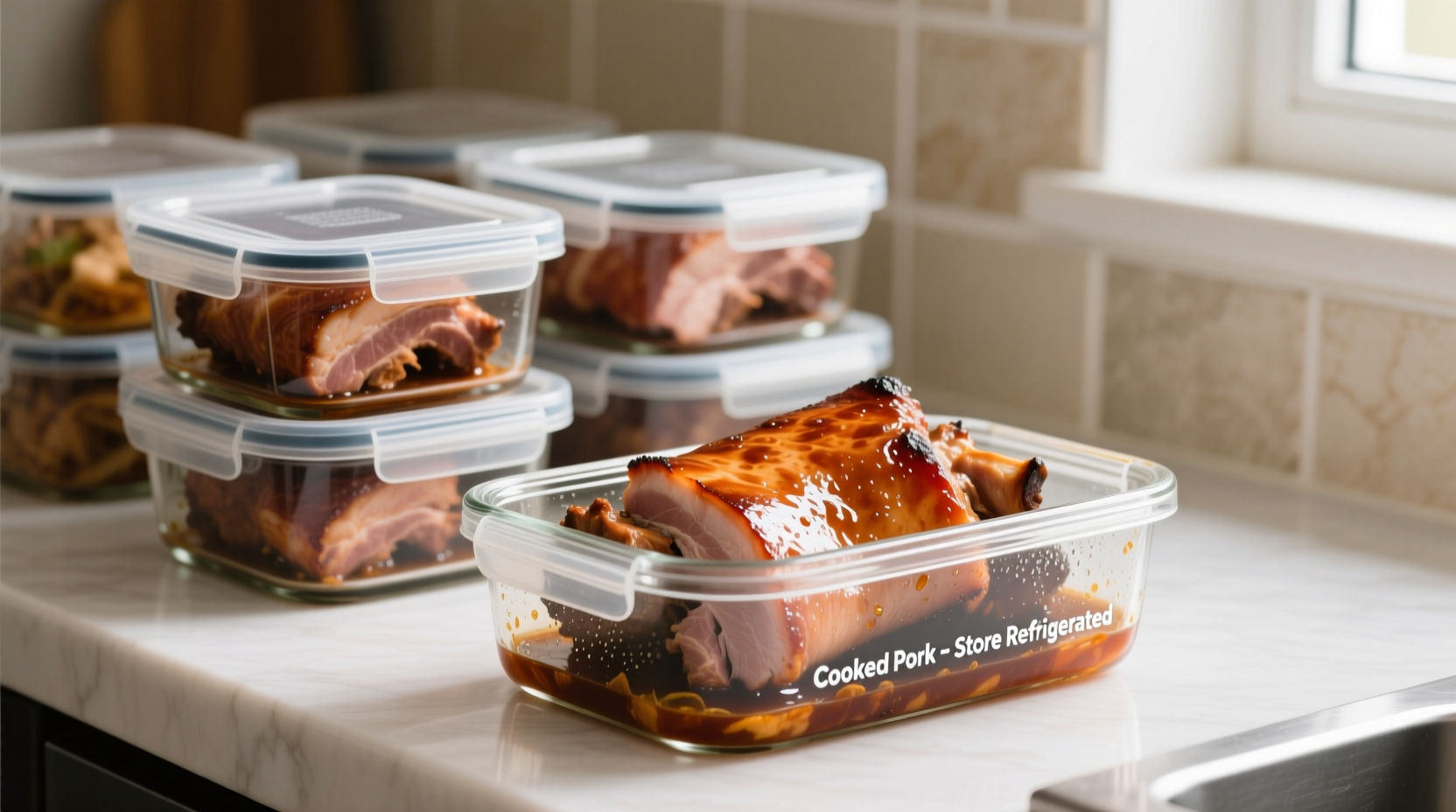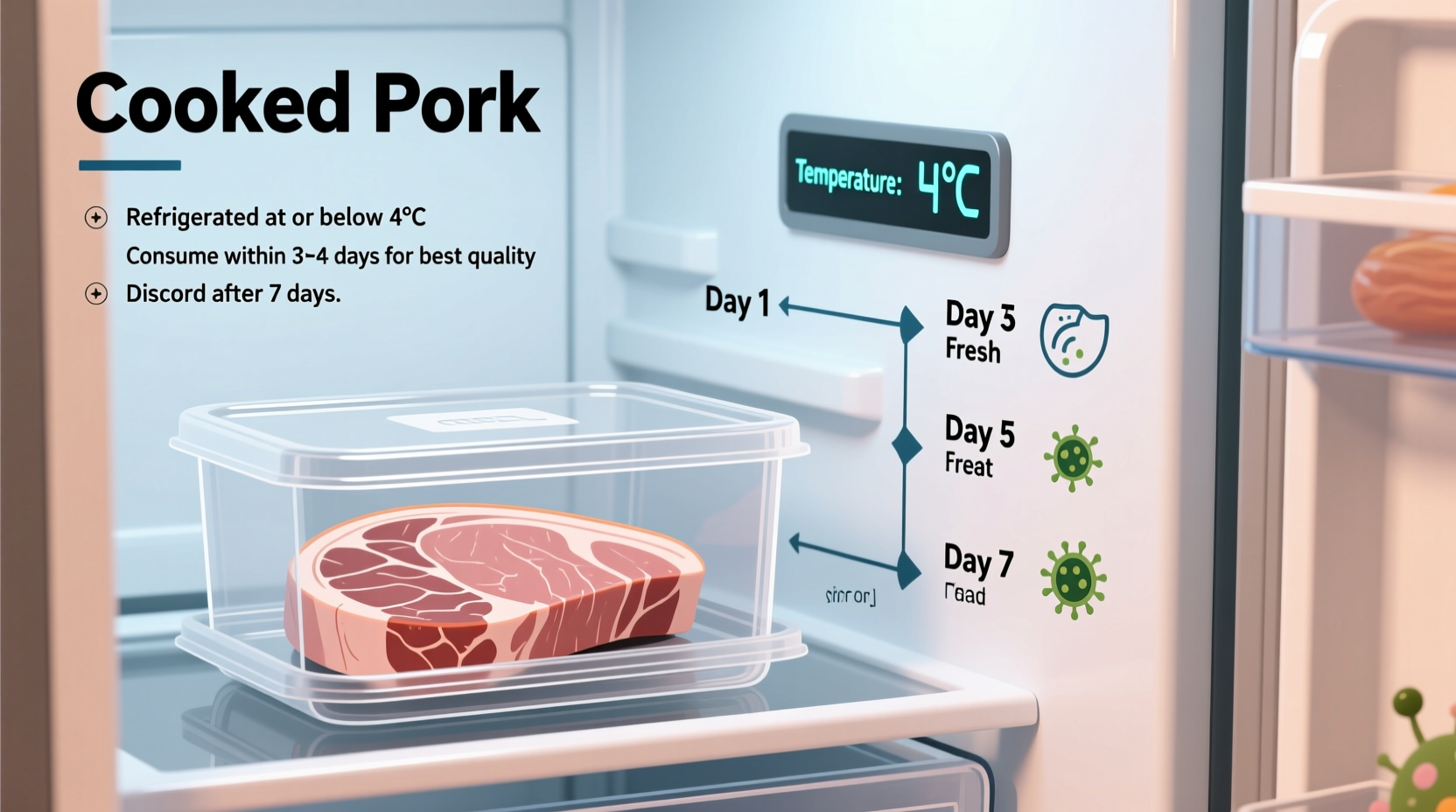Ever found yourself staring at leftovers wondering if that cooked pork roast is still safe to eat? You're not alone. Food safety concerns top the list of kitchen worries, and properly storing cooked pork is critical to preventing foodborne illness. Getting this wrong could lead to unpleasant consequences - nobody wants to spend their weekend battling food poisoning.
Why Proper Cooked Pork Storage Matters
While pork is a versatile protein that makes excellent leftovers, it's also highly perishable. The USDA classifies cooked meat as a potentially hazardous food that requires careful temperature management. When stored incorrectly, cooked pork becomes a breeding ground for bacteria like Staphylococcus aureus and Listeria monocytogenes - pathogens that cause serious foodborne illnesses.
According to the Centers for Disease Control and Prevention, foodborne diseases cause approximately 48 million illnesses annually in the United States. Proper food storage practices, including understanding how long cooked pork stays safe in the refrigerator, significantly reduces your risk.
Official Food Safety Guidelines for Cooked Pork
The gold standard for cooked pork storage comes from the USDA Food Safety and Inspection Service. Their research, based on extensive microbiological testing, establishes that cooked pork maintains both safety and quality for:
| Cooked Pork Type | Refrigerator Storage (40°F or below) | Freezer Storage (0°F or below) |
|---|---|---|
| Whole Roasts/Chops | 3-4 days | 4-6 months |
| Ground Pork | 3-4 days | 2-3 months |
| Cooked Pork Dishes (with gravy/sauce) | 3-4 days | 2-3 months |
This official USDA storage chart provides the most reliable guidance for home food safety. Note that these timeframes assume your refrigerator maintains a consistent temperature of 40°F or below - a critical factor many home refrigerators fail to achieve consistently.
Factors That Shorten Cooked Pork's Refrigerator Lifespan
While the 3-4 day rule serves as a reliable baseline, several factors can reduce how long your cooked pork remains safe:
- Temperature fluctuations - Opening the refrigerator frequently or storing food while still warm
- Improper packaging - Leaving pork uncovered or in non-airtight containers
- Cross-contamination - Storing near raw meats or using contaminated utensils
- Initial cooking temperature - Undercooked pork starts with higher bacterial counts
A study by the University of Minnesota Extension found that cooked pork stored in loosely covered containers showed bacterial growth 30% faster than pork stored in airtight containers. This explains why proper storage technique matters as much as the timeline itself when determining how long is cooked pork good in the refrigerator.
Best Practices for Storing Cooked Pork
Maximize both safety and quality with these professional storage techniques:
- Cool rapidly - Divide large portions into smaller containers to cool faster (within 2 hours of cooking)
- Use proper containers - Transfer to airtight containers or wrap tightly in heavy-duty aluminum foil or freezer paper
- Label everything - Include contents and date using waterproof marker
- Store strategically - Place on middle shelf (not door) where temperature is most consistent
- Maintain proper temperature - Use a refrigerator thermometer to verify 40°F or below
Professional kitchens follow the "two-hour rule" - never leaving cooked food at room temperature longer than two hours (or one hour if ambient temperature exceeds 90°F). This practice significantly extends the safe refrigerator storage time for cooked pork leftovers in the refrigerator.

How to Tell If Cooked Pork Has Gone Bad
When in doubt, throw it out - but here are specific warning signs that indicate your cooked pork is no longer safe:
- Texture changes - Slimy or sticky surface (not to be confused with sauce or marinade)
- Odor changes - Sour, ammonia-like, or generally "off" smell
- Color changes - Grayish tint or unusual discoloration beyond normal browning
- Mold growth - Any visible fuzzy spots (discard entire container - don't just remove moldy portion)
It's crucial to understand that harmful bacteria that cause foodborne illness often don't produce noticeable changes in food. The absence of these warning signs doesn't guarantee safety beyond the recommended 3-4 day window. This is why tracking storage time matters more than relying solely on sensory evaluation when determining how long can you keep cooked pork in the refrigerator.
Extending Cooked Pork's Shelf Life Through Freezing
If you won't consume your cooked pork within 3-4 days, freezing provides a safe alternative. Properly frozen cooked pork maintains safety indefinitely, though quality declines after:
- 4-6 months for whole cuts
- 2-3 months for ground pork or mixed dishes
For best results when freezing cooked pork:
- Use freezer-safe containers or heavy-duty freezer bags
- Remove as much air as possible to prevent freezer burn
- Consider portioning into meal-sized servings
- Thaw in refrigerator, not at room temperature
When reheating frozen cooked pork, ensure it reaches an internal temperature of 165°F as measured by a food thermometer. This kills any bacteria that may have developed during storage.
Common Misconceptions About Cooked Pork Storage
Several myths persist about food storage that could put your health at risk:
- "If it smells okay, it's safe" - Many dangerous bacteria don't produce noticeable odors
- "The 5-second rule applies to leftovers" - Bacteria transfer happens instantly
- "I can just reheat it to make it safe" - While proper reheating kills bacteria, it doesn't eliminate toxins already produced
- "My refrigerator is cold enough because it feels cold" - Use a thermometer - most people's refrigerators run too warm
Understanding these misconceptions helps you make better decisions about safe storage time for cooked pork in the refrigerator. When it comes to food safety, it's always better to err on the side of caution.
When to Consult Food Safety Experts
If you're ever uncertain about the safety of cooked pork, consult these authoritative resources:
- USDA Meat and Poultry Hotline: 1-888-MPHotline (1-888-674-6854)
- FoodSafety.gov - official gateway to food safety information
- Your local cooperative extension service
These organizations provide free, science-based advice from food safety professionals. They can help you determine whether questionable leftovers pose a genuine risk or can be safely consumed.











 浙公网安备
33010002000092号
浙公网安备
33010002000092号 浙B2-20120091-4
浙B2-20120091-4